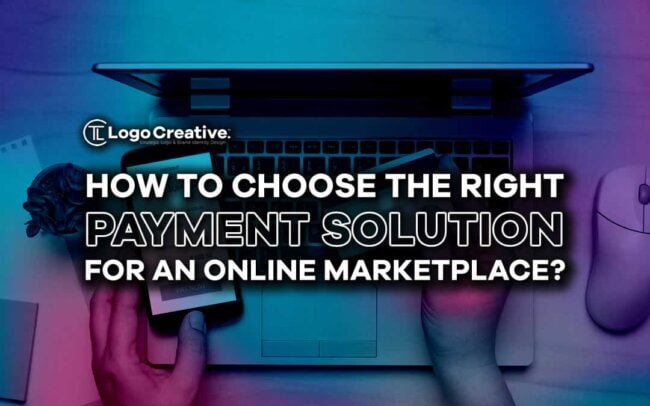In this article we discuss How to Choose the Right Payment Solution for an Online Marketplace?
When it comes to setting up an online marketplace, one of the most important decisions you’ll make is choosing the right payment solution. Marketplace payment processing is essential for any e-commerce platform, as it allows customers to easily make purchases and ensures that sellers receive payment for their goods or services.
With so many payment solutions available, it can be difficult to know which one is right for your business.
In this article, we’ll take a look at the definition of payment solution, key steps for choosing the right marketplace payment solutions, and provide some tips for finding the best payment solution for your online marketplace.
Table of Contents
Payment Solution: What is It?

The definition of a payment solution is a system that enables online transactions, such as credit card payments, e-checks, and other forms of digital payments. Payment solutions are typically provided by third-party companies, also known as payment service providers (PSPs).
These companies offer a range of services such as payment processing, fraud detection, and chargeback management.
Payment gateways are a type of payment solution that act as the intermediary between the customer and the merchant’s bank.
When a customer makes a purchase, the payment gateway securely transmits the transaction information to the merchant’s acquiring bank for processing.
The payment gateway also communicates with the customer’s issuing bank to obtain authorization for the transaction.
Another type of payment solution is merchant services. Merchant services include a wide range of services that help merchants accept and process payments, such as payment processing, fraud detection, and chargeback management.
Merchant services providers can also offer additional features such as recurring payments, subscriptions, and virtual terminals for phone or mail orders.
Online payment processors are another form of payment solution. These companies provide merchants with a secure way to accept and process payments online, often through the use of a shopping cart. Some popular online payment processors include PayPal, Stripe, and Square.
In summary, payment solutions are an essential component of any e-commerce platform, as they allow customers to easily make purchases and ensure that sellers receive payment for their goods or services.
Payment solutions can include payment gateways, merchant services, and online payment processors, each of them have their own specific features and capabilities. It’s important to choose the right payment solution that fits the needs of your business and your customers.
Key Steps for Choosing the Right Marketplace Payment Solutions

Check to see if it accepts payments in your area (Currency that you need)
When choosing a payment solution for your online marketplace, it’s important to check if it accepts payments in your area. This means checking if it supports the currency, you need and if it can process transactions from customers in your geographic region.
Some payment solutions may not be available in certain countries or regions, so it’s important to check this before signing up.
For example, if your marketplace operates in the United States and most of your customers are located in the US, you’ll want to choose a payment solution that supports US dollars and can process transactions from US-based customers.
If you plan to expand your marketplace globally, you’ll want to choose a payment solution that supports multiple currencies and can process transactions from customers in different countries.
Another important factor to consider is if the payment solution is compliant with local regulations and laws. Some payment solutions may not be compliant with certain regulations or laws in your country, which could put your business at risk.
To check if a payment solution accepts payments in your area, you can contact the payment solution provider directly or check their website for information on supported currencies and geographic regions.
You can also read customer reviews or ask for recommendations from other merchants in your industry.
International marketplaces’ support
When running an online marketplace, it’s essential to choose a payment solution that supports international transactions if you plan to expand your business globally.
This means that it should be able to process payments in multiple currencies and handle international compliance regulations.
Having a payment solution that supports international transactions will make it easier for your customers to make purchases from your marketplace, regardless of their location.
It allows you to expand your customer base and increase your sales potential.
When looking for a payment solution that supports international transactions, it’s important to consider the following:
- Currency support: The payment solution should support the currencies of the countries where you plan to expand your marketplace. This will ensure that your customers can make purchases in their local currency, which can increase trust and reduce cart abandonment rates.
- Compliance: Payment solutions should comply with international regulations and laws, such as the General Data Protection Regulation (GDPR) and the Payment Card Industry Data Security Standards (PCI-DSS). This will ensure that your business is operating within legal boundaries and that your customers’ sensitive information is protected.
- Fraud detection: A reliable fraud detection system is essential for protecting your business and your customers from fraudulent transactions. International transactions come with a higher risk of fraud, so you should ensure that the payment solution you choose has robust fraud detection features.
It’s worth noting that some payment solutions may require additional costs for international transactions, such as currency conversion fees or cross-border transaction fees.
Be sure to take these additional costs into consideration when comparing different payment solutions.
Payment gateway security measures
When choosing a payment solution for your online marketplace, it’s important to consider the security measures in place to protect your customers’ sensitive information.
Payment gateways, in particular, should have high-level encryption to protect against data breaches and should also be PCI-compliant, which means they adhere to a set of security standards set by the Payment Card Industry.
Encryption is the process of converting plain text into coded text, which is unreadable without the proper decryption key. Payment gateways use encryption to protect sensitive information such as credit card numbers, personal information, and transaction details.
When a customer makes a purchase on your online marketplace, the payment gateway encrypts the information and sends it securely to the merchant’s acquiring bank for processing.
PCI-compliance refers to the Payment Card Industry Data Security Standards (PCI-DSS) which is a set of security standards that must be met by all merchants who accept credit card payments.
The PCI-DSS standards were developed to protect sensitive customer information and reduce the risk of credit card fraud. PCI-compliant payment gateways must adhere to a set of security standards, such as regular security audits and vulnerability scans, to ensure that they are protecting customer information.
In addition to these security measures, it’s also important to consider additional security features that the payment solution provider offers. These can include:
- Two-factor authentication (2FA) to protect against unauthorized access to customer accounts
- Tokenization which substitutes sensitive data, such as credit card numbers, with unique identification symbols that have no extrinsic or exploitable meaning
- Secure Sockets Layer (SSL) certificates to encrypt data in transit between the customer and the payment gateway
It’s important to note that, as a merchant, you also have a responsibility to protect your customers’ sensitive information.
This includes following best practices for data security, such as keeping your website software up-to-date, using strong passwords, and regularly monitoring your website for vulnerabilities.
Conclusion
Choosing the right payment solution for your online marketplace is crucial for the success of your business. It ensures that your customers can easily make purchases and that sellers receive payment for their goods or services.
When selecting a payment solution, be sure to check if it accepts payments in your area, if it supports international transactions, and if it has the necessary security measures in place.
By following these steps, you’ll be able to find the best payment solutions for websites and online payment solutions for your marketplace.
Further Reading: Payment Methods For Freelance Designers.
Join The Logo Community
We hope this article about How to become a Mac Power User has been helpful. If you would like more personal tips, advice, insights, and access to our community threads and other goodies, join me in our community.
You can comment directly on the posts and have a discussion with Andrew, the Founder of The Logo Creative.
*TIP – We recommend Skillshare to learn online. There are tons of classes for everything including graphic design, web design, marketing, branding and business-related courses. Get a free trial with our link and you won’t regret it Trust us!



